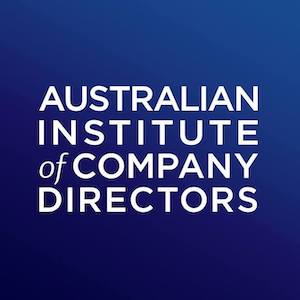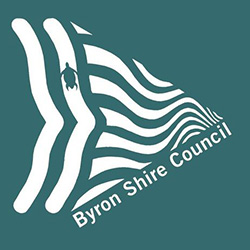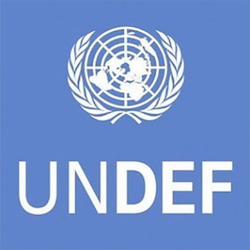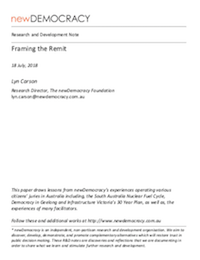With rising disaffection and public debate, democracies around the world are facing a crisis of confidence. Does Australia need to rethink its democratic structure? Deborah Richards, Australian Institute of Company Directors 01 February 2019 Around Australia, disaffected, angry voices — from community groups to business leaders to striking school students — are demanding change. “It’s...
How do we get back to politics based on truth and trust?
Luca Belgiorno-Nettis, Australian Financial Review Jan. 4th 2019 This time of the year makes you reflect. I’m 64, a Baby Boomer/silver-spooner. My Italian immigrant parents did the heavy lifting, building the patrimony that I now enjoy. This year, I spent the Christmas holidays in Tasmania with my wife, son and daughter. We visited Port Arthur and, in one...Continue reading
How polling is wrecking democracy
Mike Seccombe, The Saturday Paper, Dec 22 2018 There can be few tasks in the life of a political journalist as tediously demanding as the writing up of opinion polls. Most of the time it involves the conjuring of an illusion of news. In the vast majority of those surveys of electoral support, nothing really...
Byron Shire Council – The Byron Model of Democracy (2019)
Byron has a reputation for highly engaged community groups which can, at times, make it difficult to establish community-wide perspectives and can lead to public discourse that is highly fractious. Making trusted public decisions is arguably harder in Byron than in almost any other council across Australia. Apathy is not a problem we need to...Continue reading
The Madrid Observatorio de la Ciudad
Across Europe, there is an absence of everyday people contributing substantively to the decisions that shape the cities they live in, both now and into the future. Democracies are struggling to include everyday people in making trusted public decisions. The City of Madrid has embarked on a path of major democratic innovation to solve this...Continue reading
Victorian Government Gender Equality Bill Citizens’ Jury
There are few, if any, “right” decisions for a government; instead, the ideal decision is simply one which reflects a position of informed support from a wide cross-section of the community. Making difficult decisions with the support of the community is politically tough. It requires a government to make themselves electorally vulnerable in order to...Continue reading
United Nations Democracy Fund: Democracy Beyond Elections
newDemocracy and the United Nations Democracy Fund have recently announced a 2-year agreement centred on doing democracy differently. Making democracies more inclusive requires bold and innovative reforms to bring the young, the poor, and minorities into the political system to start to address the crisis of political representation which sees people becoming less and less engaged. newDemocracy...Continue reading
Evidence Based Policy Research Project (2018)
For the 2019 EBP Research Project – Click here. The November 2017 Symposium event convened by newDemocracy sought to challenge opinion leaders by asking them what practical testable improvements could be made to our democracy in order to improve public trust in how we take public decisions. It sought to move the discussion from one of complaint...Continue reading
Australian Symposium for Trusted, Long-term Decision-making
The Australian Symposium for Trusted, Long-term Decision-making was a deliberative event that met on two occasions, in Melbourne on October 31 and in Sydney on November 22. The Symposium was jointly convened by a range of individuals and organisations including the Australian Institute of Company Directors, Foundation 1901, newDemocracy Foundation, The Benevolent Society, University of Melbourne...
Framing the Remit
Lyn Carson – Research Director, The newDemocracy Foundation What is the question? How to develop a question for public deliberation that satisfies the needs of both participants and organisers, without leading participants toward a pre-determined answer or introducing unnecessary confusion?









